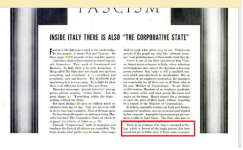- Joined
- Jan 20, 2014
- Messages
- 51,768
- Reaction score
- 14,179
- Gender
- Male
- Political Leaning
- Very Conservative
This is true, and I don’t argue it, but this isn’t a fault of the regulatory state and bureaucracy in theory, merely in practice and given the fact that most major companies are staffed with people from the same social strata, the argument that the “Free market” will work far better is not a convincing one. There is no bureaucracy in the world which is not at least somewhat influenced by the industry being regulated.Providing employment for bureaucrats is certainly the main purpose of the US regulatory state. The positive effects of (a minority of) regulations aside.
Again, granting all of this as true, the companies are staffed with the same kinds of people, and barring a major regime crisis, this will not change. So we’re talking about how to make a bad situation the least bad.What regulations a good government ought to have is a worthwhile theoretical question, but regulations that require good judgment on the part of the regulators are best left unimplemented given the regime that actually exists. There are exceptions, of course, but not many.
Part of my train of thought as a Christian is that the world is imperfect and necessarily unfair, so even the best possible governance cannot create the perfect world, we create a better one, but not a perfect one.
It’s like the union leader (Samuel Gompers) of the AFL, when asked what exactly he wanted for workers, he said “just a little more” this is a realistic viewpoint, the communist world view says man will be perfected on earth, but man will never be perfected, so whether there’s imperfection or injustice, all you can ask for is a little more

